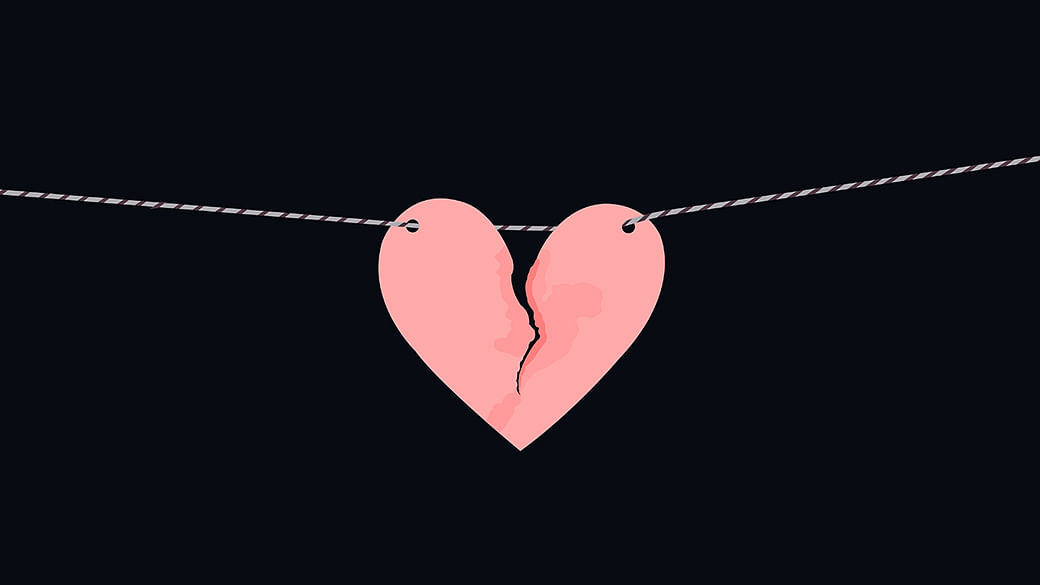Got a personal dilemma that’s stressing you out? In Dear Therapist, trauma expert Natalia Rachel untangles your knottiest issues and answers your burning questions about life, love, and everything in between. If you have a question, you can email us at magherworld@sph.com.sg or slide into our DMs at @herworldsingapore on Instagram.
Dear Therapist,
My boyfriend and I used to talk daily, but then he suddenly vanished because work was busy. Initially, I kept contacting him via messages and calls – but he wouldn’t answer me.
So I left him with one last message telling him that maybe he was feeling overwhelmed and needed time to think things through. I told him that I cherished this relationship and would give him as much time as he needs. It’s been four days and he still has not responded. I don’t know if I should try to talk to him again or should I just leave him alone. The last we spoke was eight days ago. And then I chased him for four days before pulling back and giving him space.
From, Ghosted
Dear Ghosted
Ghosting is a sign of emotional immaturity. Please know that it’s not you, it’s him.
Ghosting always hurts and it’s important to hold space for the many emotions you may be feeling that may include confusion, grief, anger and shame.
It’s just as important to know that no matter his reason for ghosting, the fact that he hasn’t offered you the basic respect of asking for space or ending the relationship shows you that he doesn’t have the emotional maturity or care to have a long-term healthy relationship. As you self-care through this, you can also affirm to yourself that you are being redirected towards someone who is better able to love you well. Healing takes time, so give yourself that.
While there are no excuses for ghosting, it can be helpful to understand the psychology behind it. Some of the reasons people ghost include:
Avoidant attachment
In some cases, when relationships deepen or get ‘serious’, a person with an avoidant personality type may feel completely overwhelmed and just disappear or ghost. While this can be heart-breaking, underneath it lies a deep-seated fear of intimacy or abandonment.
Fear of emotion or protest
If a partner wants to either ask for space, set boundaries or end a relationship, they may be worried that you’ll get upset or try to convince them to change their mind. If this has been a repeated pattern in the current or past relationships, they may simply ghost so as not to have to deal with volatility and protect their wishes for space or disconnection. Underneath it all they feel weak, threatened and unable to set and maintain boundaries.
Lack of respect
Unfortunately, some people just lack basic respect or decency. When connection no longer serves a purpose, they discard people like rubbish. This kind of behaviour falls into the realms of anti-social behavioural traits.
While we can understand some of the reasons for ghosting, it is never ok, and whatever the reason, it will hurt just as much. If your partner is being non-responsive, it is important to set a boundary with yourself and stop messaging or calling. They know you have reached out and are still not responding to your bids for attention. While you may have an urge to keep reaching out, see what happens if you stop yourself. This boundary may prompt you towards grieving and healing not only this relationship, but past ones too. Surround yourself with loved ones and if you continue to feel distressed, seek out support from a therapist.
What to do if he reaches out later:
In some cases, ghosting is temporary. Your partner may reach out in a week, month or longer. If this does happen, you have a choice to either say ‘no thank you, that behaviour was unacceptable.’ Or you can inquire about the ghosting and set a clear boundary that ghosting in the future would not be acceptable as part of a continued relationship. Remember, you have a choice about who you will be in a relationship with and what you will accept as part of that relationship and what you won’t. Stay authentic, communicative and creative. You’re in charge, always.
XO,
Natalia Rachel

Disclaimer: The Dear Therapist column is for informational purposes only. The advice given does not constitute medical advice, and is not a substitute for professional medical advice, diagnosis, or treatment. Always seek the advice of your physician, mental-health professional, or other qualified health providers with any questions you may have regarding a medical condition, and never disregard professional medical advice or delay in seeking it because of something you have read on this website.









